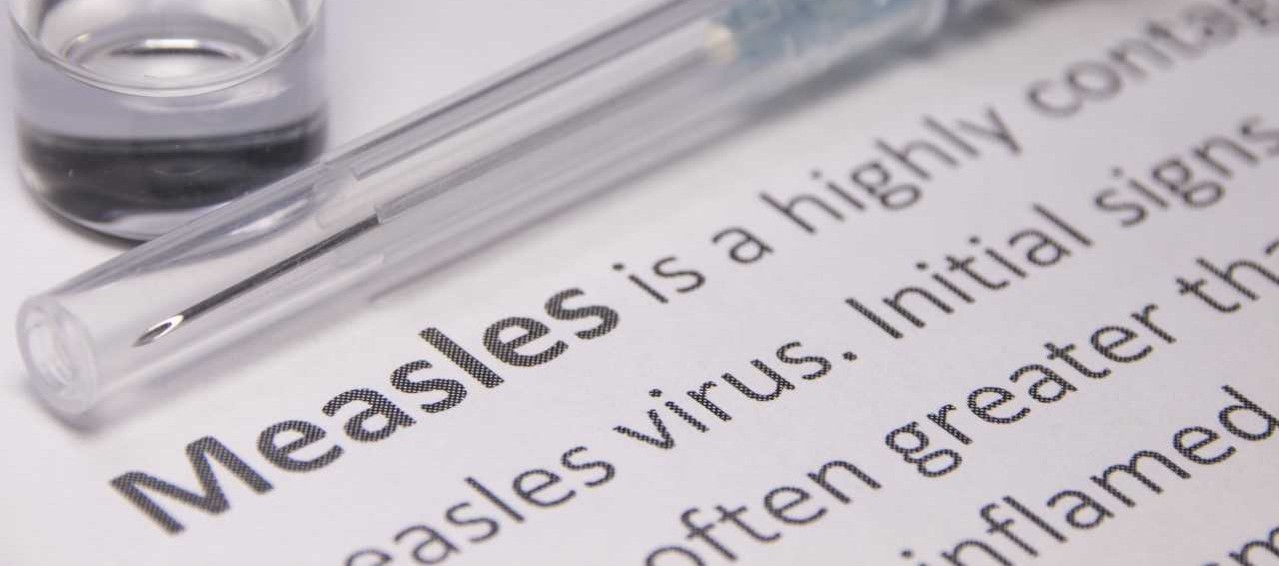
Faculty and staff: Locate your vaccination records
Before the school year begins, locate your vaccination records
If you are following the news related to measles, you may know that measles cases in the United States have climbed to their highest levels in 25 years.
And while the University of Cincinnati and many other universities work diligently to maintain the health and safety of our campus communities, it’s always possible that a case could occur here just as it did this past spring at the University of California, Los Angeles, and California State University, Los Angeles.
If a case of measles were to occur on campus, University Health Services, the Cincinnati Health Department, the Division of Student Affairs and other units would work together, ensuring best practices in terms of care for those with the disease and prevention of its spread, according to Kim Miller, M.D., UHS executive director.
FIND YOUR IMMUNIZATION RECORDS OR GET A SIMPLE BLOOD TEST FROM YOUR CARE PROVIDER
It’s likely most of UC’s faculty and staff have received the appropriate immunizations, known as MMR (measles-mumps-rubella) vaccination. Children in the U.S. routinely receive measles vaccination at age 12-15 months.
If a case or cases of measles should occur on campus, faculty and staff members would need to prove their immunity in order to meet health department guidelines, according to Miller.
- Those faculty and staff (as well as students) who might be directly or indirectly exposed to someone with measles would need to prove immunization. If unable to do so, those directly or indirectly exposed to someone with measles would be subject to directives recommended by the Cincinnati Health Department, that could include quarantine.
- In the event of an outbreak (which is defined as three or more cases), even faculty and staff (or students) who have not had verifiable direct or indirect exposure to someone with measles could still need to show proof of immunization in order to come to campus for work or studies.
According to the Cincinnati Health Department web site, measles is highly contagious. Measles is so contagious that if one person has it, up to 90 percent of the people close to that person who are not immunized/immune will also become infected.
If you cannot find your immunization records, your doctor can perform a simple blood test to determine if you are immune. Consider having an immunity test during your next routine medical office visit, so that you have your records readily available if needed. Those test results would be considered verifiable proof of immunization.
Important note: Individuals born before 1957 are considered immune to measles and do not need to take additional steps to be protected. Such individuals would only need to show verifiable proof of age, e.g., such as a driver’s license, passport or HR record, in order to prove immunity. (This is because people born before 1957 lived through several years of epidemic measles before the first measles vaccine was licensed in 1963. As a result, these individuals are very likely to have had measles disease. Surveys suggest that 95 to 98 percent of those born before 1957 are immune to measles.)
MORE INFORMATION
UC policy already requires incoming students to the university’s Uptown and regional campuses to show proof of immunizations.
Tags
Related Stories
Before the medals: The science behind training for freezing mountain air
February 19, 2026
From freezing temperatures to thin mountain air, University of Cincinnati exercise physiologist Christopher Kotarsky, PhD, explained how cold and altitude impact Olympic performance in a recent WLWT-TV/Ch. 5 news report.
Blood Cancer Healing Center realizes vision of comprehensive care
February 19, 2026
With the opening of research laboratories and the UC Osher Wellness Suite and Learning Kitchen, the University of Cincinnati Cancer Center’s Blood Cancer Healing Center has brought its full mission to life as a comprehensive blood cancer hub.
UC Digital Futures and Cincinnati Fire Museum launch educational video game
February 17, 2026
A new collaboration between the University of Cincinnati's Digital Performance Lab (DP Lab), CCM Acting, UC's School of Information Technology, and the Cincinnati Fire Museum is using gaming technology to bring essential fire safety education to children. The project titled Fire Escape is an interactive video game designed to teach K-12 students how to respond safely during a house fire. It was developed through Digital Futures research support, student game development, and guidance from local fire safety professionals.
